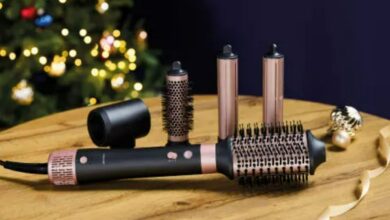I made £400k but blew it all and went bankrupt but I STILL can’t stop spending
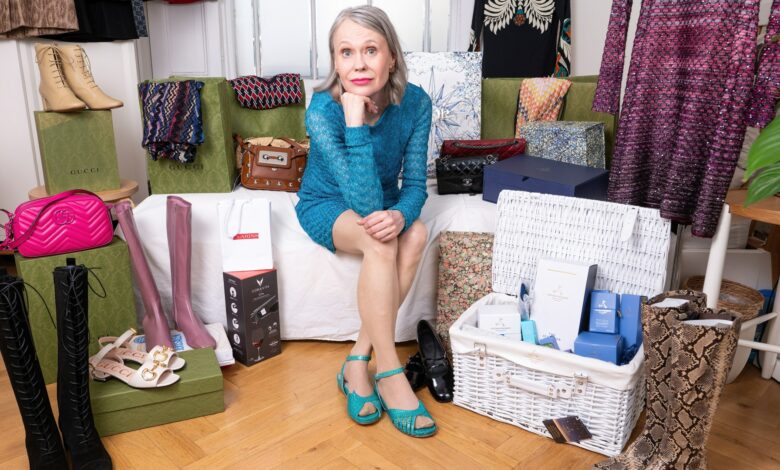
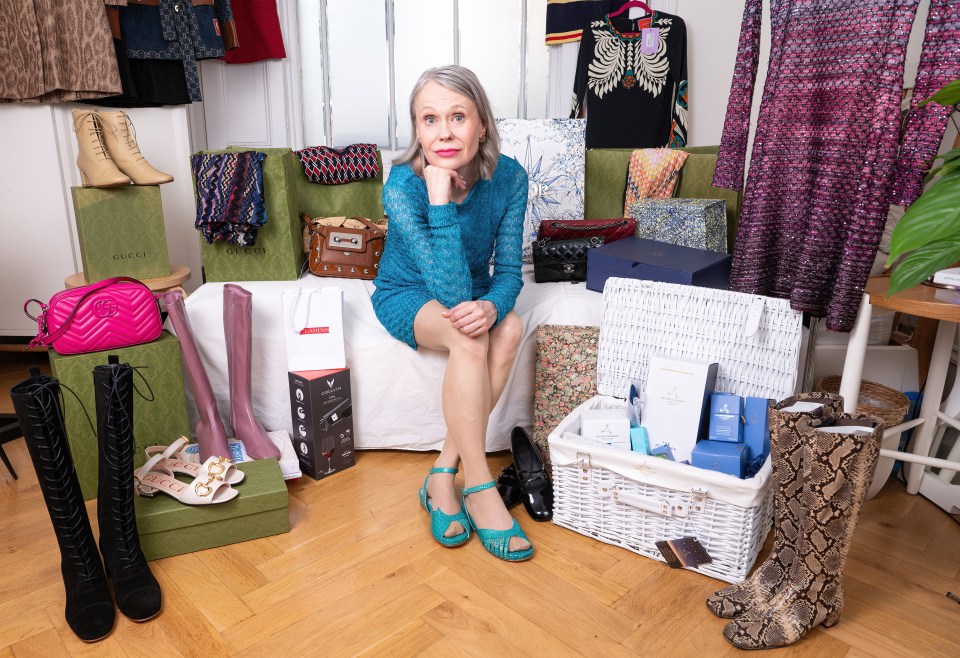
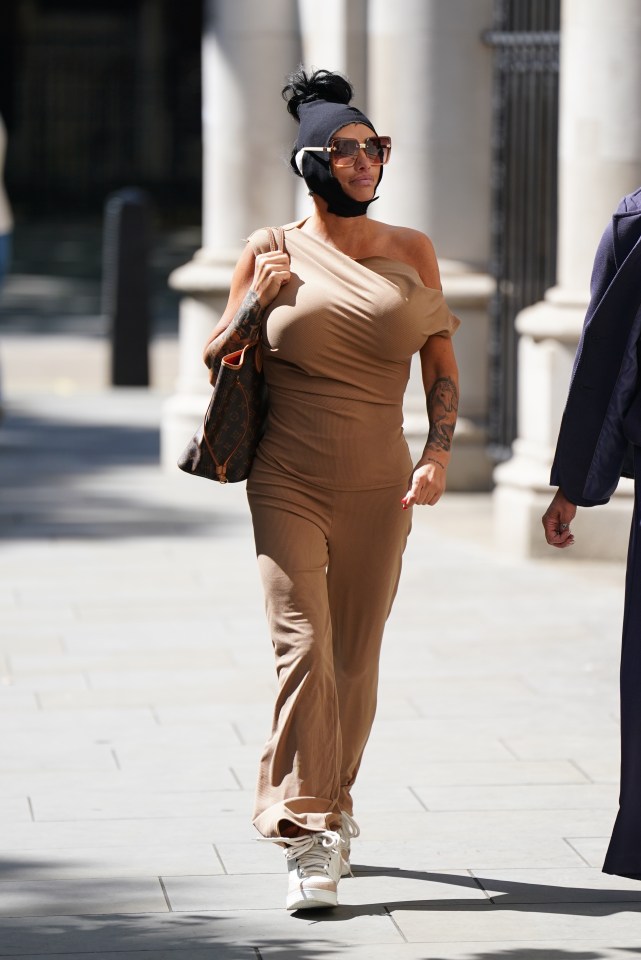
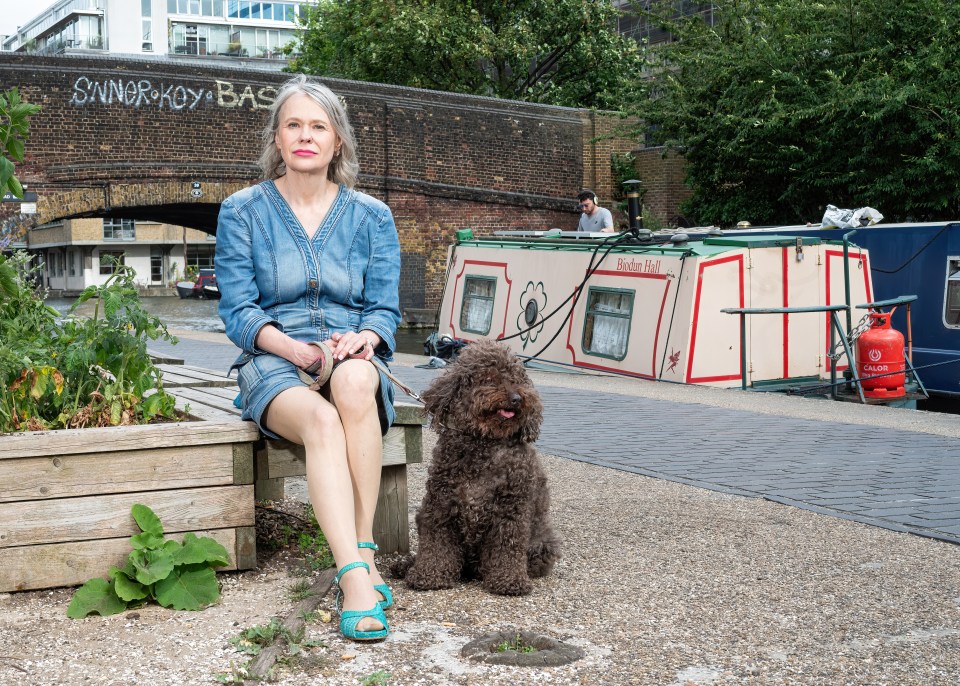


Despite earning a fraction of her previous income, Polly Arrowsmith still lives an extravagant lifestyle. Today she explains why…
Standing in the Dior store, I do a few laps before deciding to buy a gorgeous £3,000 coat.
It is a timeless classic and I am sure it will last for years to come.
It may come as a shock to hear that I bought it around this time last year, as I was still struggling to keep a roof over my head after going bankrupt in September 2020.
Until then, I had been living an idyllic life, since I started a web hosting company in 2002.
For 15 years, when my business was doing well, I earned up to £400,000 a year from my salary, consultancy work and income from eight owner-occupied properties.
But like Katie Price, who first declared bankruptcy in 2019, I couldn’t help but keep spending after losing everything.
Pals recently revealed that the former glamour model, 46 — who appeared in court last week after missing a hearing into her second bankruptcy — had previously splashed out £7,000 on a trip to Selfridges despite her desperate financial problems.
Since my bankruptcy four years ago I’ve spent £20,000 on clothes alone, including that Dior coat I tried on in store and bought online, a Gucci coat I paid £1,880 for and trainers for £600 from the Gucci store.
I also bought two identical Paco Rabanne dresses. They were a bargain, reduced from £800 to £180, and then some.
I bought a Missoni dress for £375, reduced from £1,750 in the sale.
I have also spent about £300 on skirts and shoes at £250 each, £100 on tops and I buy tights from Woolford at £30 each. I am rebuilding my working life and need to look like a pro again.
I buy expensive gifts: for example, I spent £1,000 on a turntable for a good friend’s birthday.
I regularly go to West End shows and expensive restaurants. I enjoy champagne and oysters.
Later this year I’m going on holiday to Cornwall and last Christmas I went to Lapland.
Cartier to Chanel
You could even say that my life before bankruptcy was comparable to that of an international celebrity.
I flew all over the world and had no qualms about spending £10,000 on a week in Barbados to celebrate my sister’s 50th birthday in 2014.
It was perfect, we were going to the Sandy Lane Hotel, a favourite haunt of celebrities such as Simon Cowell, to have cocktails whilst looking out over the sea.
I knew I was lucky but I worked hard for my money I felt validated by having possessions
Polly Arrowsmith
Another time I stayed in New York at the Mark Hotel, which became famous in 2019 as the place where Meghan Markle had her baby shower.
There were so many trips, I traveled everywhere from Venezuela to New Zealand, mostly first class or business class.
I had all the trappings that rich people enjoy, from Cartier watches to six Chanel handbags. I still remember the joy when I bought my Cartier Tank watch in 2004 for £1,800 and felt like I had arrived once I had it.
My wardrobe was filled with £150,000 worth of clothes, I was a regular at Harvey Nichols and Selfridges, I had sunglasses from Tiffany, Dior and Gucci.
I loved being able to walk into a store knowing that I could afford most things, and the store associates recognize that and treat you accordingly.
It wasn’t just the buying that gave me a dopamine rush. I got a huge amount of pleasure from my purchases when I got home. It’s addictive.
I could fill my shopping cart with whatever I wanted.
When I didn’t feel like cooking, I would eat out. I enjoyed treating my friends and family and I gave ten percent of my earnings to charity. I felt blessed and wanted to share the joy.
I knew I was lucky, but I worked hard for my money. I felt validated by possessions. I liked it when people turned down my watch and saw that I was successful.
The origins of these emotions lie in my childhood.
My mother was an alcoholic in my early years and was often absent, and I was bullied at school.
I had no pocket money and presents were scarce. I got my first job at the age of 13 in a shop near our house in Yorkshire. None of my friends worked and were usually richer than us.
I remember my best friend got a beautiful leather jacket for her birthday. I loved that jacket and saved my salary for weeks to buy the same one and felt so accomplished.
I started equating making money with buying nice things that made me feel like I belonged.
I studied business administration at university and during my holidays I worked in the hospitality or retail industry.
When I left I worked in finance until I set up my own business and in 15 years we turned over £60 million and employed 18 people.
It’s complicated how it all happened, but it boils down to the fact that I personally guaranteed the company, and when I failed to repay a debt in 2017, I was held liable and lost my company.
In September 2020, after three years of struggle, I went bankrupt.
I was £980,000 in debt and as I fought it, I kept spending, craving that dopamine rush.
Although I spoke to a few friends and family members about my bankruptcy, I tried to hide it from most people. I hated the shame.
Part of my identity
My family became concerned and suggested that I should stop spending money.
But some of the items I bought, like the Gucci sneakers, have actually increased in value because they are limited editions.
Normally a bankruptcy takes a year, but due to the pandemic and the complexity of having to sell my investment properties, it took until December 2023. I had hoped that the properties would cover the debts.
Unfortunately they didn’t and in July 2022 I was evicted from my beautiful three bedroom home in North London with 12 hours’ notice.
I quickly ran around to grab some favorite things and I remember sitting outside on the steps the morning the bailiffs came in, feeling completely shocked and desperate.
I have hit rock bottom and it is only through the support of my family (my sister admitted me), a psychiatrist and medication that I am still here. I have often thought about committing suicide.
I was seen as a failure, the enormous success of my company did not count.
I lost my job, my home, and many of my favorite possessions. The reasons why I still buy expensive things are complicated.
I am now 57 and although I realize that possessions and wealth are not everything, and I have learned that I am lovable even without money, I find it difficult to accept that your whole life has changed.
Being rich and having designer items was part of my identity and it’s hard to let go of that. And I still enjoy the buzz of buying something nice.
I think that’s why Katie Price struggles. She went from immense wealth to nothing.
You keep replaying in your head what you could have done differently. So you cling to what made you feel better in the past.
And she does it openly, which has to be even worse.
I am currently single and live in an apartment that I rented, but I am in a dispute with my mortgage lender, so I know I could still lose that amount.
I still search endlessly for bargains, but I can’t get into debt because I have no credit.
I work hard as a consultant and earn a fraction of my previous salary, so I save for special purchases.
I am resilient and know that I will bounce back.
I know people will criticize me for still spending money, but I have complied with all legal obligations.
Spending money and still doing my best in the old world has helped me get through this difficult time. Plus I always buy bargains.
I never judge people. Although there is such a stigma attached to being bankrupt, it shouldn’t be. If a few things go wrong, it can put anyone in serious financial trouble.
One moment I was negotiating the sale of my company for millions, the next next I had almost nothing, so I’m happy with what I have now.
- As told to MEL FALLOWFIELD
Ask for Help: Don’t Suffer in Silence
According to Jonathan Chesterman of debt charity StepChange, the first thing you should do if you find yourself in financial trouble is to confront it.
The debt counselling policy manager adds: “Before choosing a solution for your debts, you should seek advice from a free and independent debt counsellor such as StepChange.
“The debt relief process allows you to assess your options and determine the best course of action for your specific situation.
“Bankruptcy may be an appropriate solution if there is little hope of being able to repay your debt within a reasonable period of time.
“But it could also be another solution that involves debt forgiveness, such as a debt settlement plan, an individual voluntary arrangement or a plan to pay off your debts at an affordable rate through a debt management plan.
“All of these solutions have different requirements and vary depending on your location.
“The most important thing is not to suffer in silence with your financial problems. There is free and non-judgmental help available to help you get your finances and life back on track.”
For more information, see stepchange.org.








